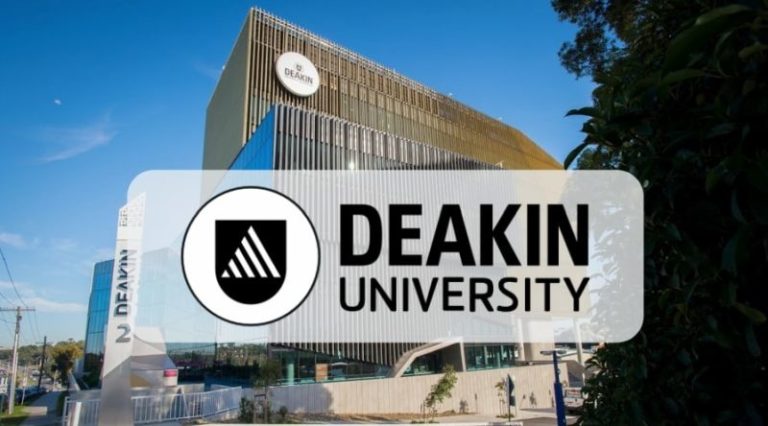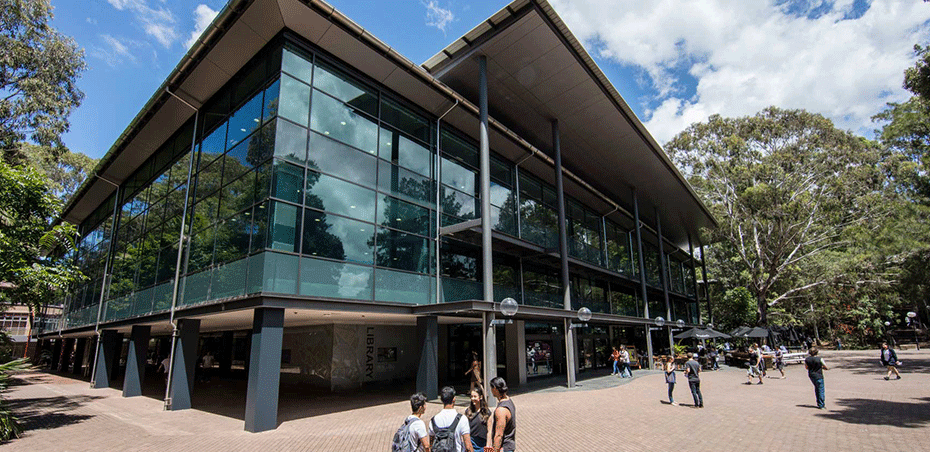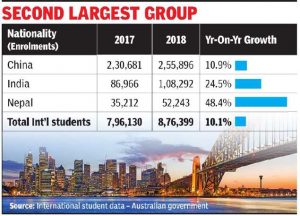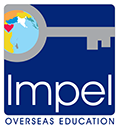The Morrison Government is making a number of changes to student visa arrangements to ensure Australia remains a priority destination for international students as we emerge from the COVID-19 pandemic.
International students are extremely important to Australia and our economy, contributing $40 billion annually and supporting 250,000 jobs. Many also go on to become great Australian citizens.
While the closure of our international borders has been critical to our success in slowing the spread of the coronavirus, and Australia has been a leader in this regard, it has presented challenges to the education sector and students, both here and offshore.
These five visa changes will ensure international students are not worse off due to the coronavirus pandemic and that Australia remains competitive with other countries.
The changes include:
- The Government will recommence granting student visas in all locations lodged outside Australia. This means when borders re-open, students will already have visas and be able to make arrangements to travel.
- International students will be able to lodge a further student visa application free of charge, if they are unable to complete their studies within their original visa validity due to COVID-19.
- Current student visa holders studying online outside Australia due to COVID-19 will be able to use that study to count towards the Australian study requirement for a post-study work visa.
- Graduates who held a student visa will be eligible to apply for a post-study work visa outside Australia if they are unable to return due to COVID-19.
- Additional time will be given for applicants to provide English language results where COVID-19 has disrupted access to these services.
Acting Minister for Immigration, Citizenship, Migrant Services and Multicultural Affairs Alan Tudge said the changes provide assurance to international students already in Australia and those who haven’t been able to travel due to COVID-19 border closures.
“These measures back the international education sector – our fourth largest export sector – and will assist its recovery,” Mr Tudge said.
“In making these changes, we have been guided by the principles that the health of Australians is key, but that international students should not be further disadvantaged by COVID-19.
“We are a welcoming nation with a world-class education system and some of the lowest rates of COVID-19 in the world. Students want to study here and we want to welcome them back in a safe and measured way when it is safe to do so.
“Doing so will not only support the education sector, it will also have flow-on effects for many local communities and businesses, including accommodation services, tourism, hospitality and retail.”
Minister for Education Dan Tehan said the changes would give international students confidence in their visa arrangements so they can make plans to study in Australia when it is safe to do so.
“Our remarkable efforts in controlling the spread of the virus mean we can begin to welcome back international students in a COVID safe way once state borders re-open and face-to-face learning resumes,” Mr Tehan said.
“As well as supporting jobs, international education builds our connection to the rest of the world and supports a number of critical industries like health, aged and disability care.”
The Government has previously relaxed work restrictions for international students working in the health, aged and disability care sectors during the COVID-19 pandemic. It has also been flexible in cases where the COVID-19 pandemic has prevented international students meeting their visa conditions, such as not being able attend classes in person.
Source: Australian Government – Department of Home Affairs
Scott Morrison allows international students back from July, says Australia-China relationship ‘not injured’
The Federal Government will allow international students back into the country in a “pilot basis” from next month, as Australia’s higher education industry looks to recover from a double hit of travel restrictions and accusations of racism.
Prime Minister Scott Morrison announced the pilot plan after a National Cabinet meeting in Canberra, with international students to be able to enter the country but only on “pre-approved plans” for “particular institutions”.
The particular universities were not specified, however Mr Morrison did single out the ACT in his statement — home of The Australian National University (ANU).
“There’s still a lot of work to do and that needs to get in place,” he said.
“We’ve received some very, I think, well thought-through proposals from states as to how this can be done.
“This is something that I’m sure we would all welcome happening again, but it has to be done with the appropriate quarantine entry arrangements and biosecurity, and all of those matters [are] being addressed.”
The university sector has been lobbying behind the scenes for what’s known as a “secure corridor framework” where students could return in yet-to-be-determined numbers subject to strict health checks and with the cooperation of the aviation industry.
The higher education sector cautiously welcomed Friday’s announcement, which comes after a major lobbying effort from the sector on behalf of international students, which make up as much 30 to 40 per cent of some university’s admissions.
Universities Australia chief executive Catriona Jackson described the pilot plan as a “sensible approach”.
“Universities Australia has been talking to the Federal Government about an overarching framework for a safe return for some time,” she said.
“It is good to see progress today with specific pilot proposals under consideration.”
ANU Vice-Chancellor Professor Brian Schmidt said the university was “looking forward to welcoming our students back to Canberra”.
“We’ve missed them and it’s been tough on them being away from the city and campus.”
The Australian Bureau of Statistics estimates Australia’s higher education sector generated a record $15.9 billion in international student tuition fees in 2018-19.
It is estimated that, Australia-wide, revenue for universities will drop by $3 billion this year.
China storm continues
The announcement comes amid a diplomatic storm with China, a country that makes up 27 per cent of all international students into the country.
This week China’s Education Bureau took the rare step of warning Chinese students about studying in Australia because of “racist incidents” during the coronavirus pandemic.
The notice also warned students that coronavirus still presented a risk if they planned to resume their studies overseas.
Responding to the accusations of racism and the ensuing diplomatic storm with China, the Prime Minister said Australia had done “nothing to injure” its relationship.
“What Australia will always do is act in our national interests in accordance with our values,” he said.
“We’ll do so consistently and with consistency, and we will respect that comprehensive strategic partnership.
“And when it comes to our record of multiculturalism, of freedom of religion, of liberty, treating everybody equally — I’m happy to stack Australia’s record up all around the world.”
Life as we know it has changed. What hasn’t changed? Studying online at Deakin University
Studying online at Deakin:
Apply Online @ https://www.impeloverseas.com/students-corner/apply-online/
Post Study work rights for Indian Students in Australia
The Post-study Work stream of the subclass 485 visa is for international students with eligible qualifications, regardless of their field of study. You must have also met the Australian study requirement within the past six months, which means:
- your course is CRICOS-registered
- you successfully completed all course requirements
- your study was in English
- you completed your study over at least two academic years (92 weeks)
- you were physically in Australia for at least 16 calendar months to complete the study
- you held an Australian visa that allowed you to study
Qualifications
The qualification that you have completed must be an eligible degree. This means a:
- bachelor degree
- bachelor (honours) degree
- masters by coursework degree
- masters (extended) degree
- masters by research degree
- doctoral degree
If you have studied a standalone diploma or trade qualification, you are not eligible eligible to be granted a visa in this stream.
NSW announces $20m housing fund for international students
The New South Wales government has announced that it will fund temporary crisis accommodation for international students who are facing hardship due to Covid-19. The $20m relief package will include a temporary housing scheme and student support services.
Minister for Skills and Tertiary Education Geoff Lee said helping international education meant helping the whole state of NSW.
“International students are an integral part of our communities and our economy,” Mr Lee said.
“Thousands of families around the state depend on the sector – whether through direct employment, homestays or other services.
“The package includes a temporary housing scheme, targeted at students in genuine need and delivered through approved student accommodation or homestay providers.
“It also provides increased support via the International Legal Service NSW, making available 50,000 free subscriptions to the multilingual My Legal Mate student app”.
A new 24/7 international student support service, through the NSW Government COVID-19 hotline (13 77 88), will offer free advice and information about other measures, including the moratorium on rental evictions and medical, mental health, legal and emergency support.
Mr Lee said international students make a huge contribution to NSW and deserve a helping hand.
“Many have lost their part-time jobs, are unable to return to their home countries and do not qualify for Commonwealth Government support programs,” he said.
“The additional support being announced today complements efforts of our education institutions, highlighted by a combined $180 million commitment from NSW universities for their international and domestic students.”
Council of International Students Australia (CISA) president Ahmed Ademoglu welcomed the announcement.
“We are pleased to see the NSW Government focus on crisis accommodation for vulnerable international students, which is something that we as an association have been calling for,” Mr Ademoglu said.
Source: https://www.nsw.gov.au/news/nsw-government-supporting-international-students-through-covid-19
Scott Morrison opens the door for international students to return to Australia
The federal government has confirmed it will consider exempting international students from Australia’s travel ban as early as July.
Prime Minister Scott Morrison revealed a national three-stage framework out of coronavirus restrictions on Friday that opened the door for overseas-based students to return to Australian universities.
While specifics around the exemption have not been outlined, Mr Morrison said it would only be done if strict quarantine restrictions were met.
“Issues of international students, you’ll note that it does come into the third step of the plan, that is a possibility,” he said.
“We are open to that, and we would be working with institutions to see how that could be achieved.
“But it must be done according to those strict quarantine restrictions and how that’s done, and how those costs are met.”
At least 10 per cent of international students enrolled at Australian institutions are stuck overseas with the industry worth $40 billion a year to the economy.
Australian universities are expected to record large losses as a result of forced campus closures and border restrictions.
The international education lobby has been pushing for an exemption to travel bans for international students.
“Clearly without any international students coming into the country, Australia’s fourth-biggest industry is in a major crisis,” International Education Association of Australia CEO Phil Honeywood said.
National COVID-19 Coordination Commission Chair Nev Power stressed the importance of rebooting education as quickly as possible and suggested the possibility of university-funded charter flights to bring overseas students back to Australia.
“There is an opportunity for the universities to work with the government to provide safe processes … expedite those visas, get those international students back here as quick as possible,” Mr Power told the Australian Financial Review.
“We’ll need to put quarantine provisions in. We’ll need to make sure that unis are reconfigured to incorporate safe practices. But that way we can accelerate that because right now, this academic year, you could have them back.”
However, the uncertainty faced by international students has left many considering if it is worth committing to another semester in Australia.
Belle Lim of the Council of International Students Australia said some students were choosing to defer their studies.
“The next semester is starting soon, some of them have received a conditional offer but they don’t know if they should take it,” she said.
“They don’t know if they can come back to Australia in time.”
The peak body for Australian universities insists any rush for a return to face-to-face teaching will need to meet strict medical guidelines.
“The health of our student and staff body is always the number one priority,” Universities Australia CEO Catriona Jackson said.
“None of this happens if we don’t get the OK to do so from health authorities.”
Deakin announces up to $25 million in hardship support for international students

Deakin has announced up to $25 million in additional targeted support for international students experiencing hardship as a result of COVID-19.
Vice-Chancellor Professor Iain Martin said the support for impacted international students was available for the next six months and in addition to the financial assistance for domestic students.
“Many international students, through no fault of their own, are struggling with the costs of living and studying, yet are not eligible for the same Government COVID-19 assistance available to our domestic students,” Professor Martin said.
“Some of those students face a very desperate situation where their part-time and casual work is gone or drying up, and they can’t return home yet can’t afford to stay. This is an untenable position.
“With no access to Government assistance, our additional hardship support will prevent students from falling through the cracks during the difficult months ahead. We stand shoulder-to-shoulder with our international students.”
Professor Martin said the hardship support for international students was available through Deakin’s existing support services and that the University would continue to take a case-managed, individual approach to assist.
“When students connect to our support services, we are talking one-on-one to identify how we can best help that student continue their studies at Deakin,” he said.
“That direct conversation is the best way to determine specific and unexpected personal circumstances and tailor our support as necessary. So far, we have approved more than 1200 requests for immediate financial and hardship support, with hundreds more applications currently being assessed.
“My message to every Deakin student is that if COVID-19 has made it hard for you to continue your studies, then please step forward and let us know.
“We want our international students to continue at Deakin, and as of this week, more than 95 per cent remain enrolled. I hope this additional support will keep it that way. Of course, should an international student decide they simply cannot continue, we will support that decision and help with either a transition to online study or by holding their place for the future.”
Further flexibility and supports for Deakin students include:
- Additional time to change enrolment or withdraw from a course without incurring any penalty. The two-week Census grace period remains in-place until Wednesday 15 April 2020. Deakin has also extended the time for late withdrawals until 1 June 2020.
- The extension period for assignment due dates has been extended to up to three weeks, with medical certificates no longer required. It is also easier for students to apply for special consideration.
- The T1 exam period will continue as planned with online assessments.
For more information about Deakin’s student supports, visit: https://www.deakin.edu.au/students/enrolment-fees-and-money/financial-assistance/covid-19-financial-assistance
Deakin First Australian University To Offer Accredited Cyber Security Courses

Deakin will be the first university in Australia to offer a fully accredited cyber security qualification, under Australia’s first cyber security course accreditation scheme.
The Australian Computer Society (ACS) is the only body in Australia with the power to accredit IT courses, and has recently added cyber security to its accreditations.
While cyber security courses are currently offered at many universities and other educational institutions across Australia, until now none of these courses have been accredited by an external and independent body.
ACS accreditation means that universities and other institutions offering cyber security courses will have to meet a series of accreditation standards set by the ACS, developed in consultation with government and industry.
Deakin’s School of Information Technology has been offering a Bachelor and a Master in Cyber Security over the past three years, however the new accreditation elevates the rigour and status of the courses significantly, with Deakin achieving stringent accreditation standards.
Professor Karen Hapgood, Deakin’s Executive Dean of Science Engineering and Built Environment, said Deakin’s new cyber security accreditation demonstrated the high quality and academic integrity of its cyber security courses.
“Deakin is proud to be able to offer students a fully accredited cyber security course that will be recognised industry-wide and overseas,”Professor Hapgood said.
“It certainly endorses the high quality curriculum and the high quality of academic staff teaching our courses, and validates Deakin’s decision last year to update its cyber security courses in line with industry and world needs.
“As cyber security becomes more important to our national and global security than ever before, it is vital that students can take comfort that they are being taught at the highest possible level.”
ACS President Yohan Ramasundara said ACS has long been recognised as the accrediting body for technology-related degrees and post-graduate qualifications related to initial professional practice.
“With the growing need for expertise in cyber security for our evolving and growing digital economy, introducing recognition for specialist cyber security qualifications and expertise was a must,” Mr Ramasundara said.
Around 500 students study a Bachelor or Master of Cyber Security at Deakin each year, with an average annual intake of 150 students.
International success in latest higher education rankings
UOW researchers crucial in University’s rise to position 238 in world

The University of Wollongong (UOW) improved its rank and score in the 2020 Times Higher Education (THE) World University rankings announced on Thursday morning.
UOW rose an estimated five positions from 243 in 2019 to 238 in 2020, continuing on its ascension path laid in recent years.
THE rankings measures universities on their teaching, research income and reputation, citations, international outlook, and knowledge transfer to industry.
In a year, UOW’s overall score lifted from 50 to 50.5, following a better performance in research, industry income and international outlook indicators.
UOW researchers were integral to the University’s success in the 2020 rankings, as the research indicator has the greatest bearing on a university’s overall score.
UOW Acting Vice-Chancellor Professor Jenny Martin said UOW had increased its standing thanks to the hard work of academics and staff.
“We’re proud to see the University of Wollongong again climb in international rankings,” Professor Martin said.
“These results are the fruits of the continuing commitment of UOW staff, and I want to acknowledge their hard work.
“Our researchers continue to lead the way in producing quality, impactful research that leads to positive economic and social outcomes.
“The high quality research taking place, both independently and in collaboration with partner institutions around the world, is strengthening our academic reputation.”
The University’s formidable result comes in a competitive environment, both nationally and further afield.
Nearly two thirds of Australian universities rose in the 2020 THE World University rankings.
As the Australian university sector improved markedly, UOW moved from equal 11th to equal 12th in Australia.
Source: https://www.uow.edu.au/media/2019/international-success-in-latest-higher-education-rankings.php
Indian students enrolling in Australia surged 25% in 2018
MUMBAI: More than one lakh students from India enrolled in Australian educational institutions during 2008, constituting 12.4 per cent over the previous calendar year. China continued to lead with 2.56 lakh students (or 29 percent of the total).
Australia has announced an ‘Additional temporary Graduate’ visa with an extra year of post-study work rights for international students who graduate from the regional campus of a registered university. At present, students who study at the bachelor’s or master’s degree level in Australia (usually 2 or 3 years) get a two-year post-study work visa. By offering students an extra year in Australia on a post-study work visa if they study in regional areas, the country aims to kill two birds with one stone.

The ‘additional temporary graduate’ visa by Australia to the international students will help in its overall plan to decongest popular areas of Sydney, Melbourne, Perth, Brisbane and the Gold Coast. It will also help attract more international students.
As students need to graduate from a regional campus and then spend at least two years residing in a regional area to qualify, the ‘Additional Temporary Graduate’ visa will be available to the first eligible cohort of graduates from 2021, states a recent release from Australia’s department of home affairs. For those students who are currently holding the Temporary Graduate (sub class 485) visa, which is the existing post-study work visa, ongoing residence in a regional area could qualify them for an additional year.
In a separate release dated March 20, Pm Scott Morrison announced new tertiary scholarships to attract Australian and international students to study in regional Australia. Worth Australian $15,000, these scholarships will be available to more than 1,000 local and international students each year.
Zahirah Ismail, Perth-based managing directior at the immigration service company Home of Visas, told TOI:” An additional year for graduates shows that policy-makers are acknowledging the difficulties faced by students as they attempt to gain relevant work experience. In several occupations, in order for an applicant to gain positive skills assessment, they are required to demonstrate at least three years of relevant work experience post their qualification. “she recommends that international students should look at employment prospects for each territory and best match this data against occupation lists for migration purposes.
Andrew Everett, deputy vice-chancellor and vice president, global strategy, at Charles darwin University, said:”CDU is examining how best to provide for international students who might qualify for an Additional temporary Graduate visa.” Spread over various campuses, including regional campuses, 10% of CDU’s 20,000 students are of foreign origin, the majority of them from India, Nepal, Bangladesh and China.
Several students also want to put down roots and work long term in the host country. In this context, Cyrus Mistry, director at EasyMigrate Consultancy Services, “Introduction of new Regional (Provisional) Visas, which provide an option of conversion to permanent residency after a tenure of three years, could also be attractive to international students, provided they are willing to settle in regional areas”.



